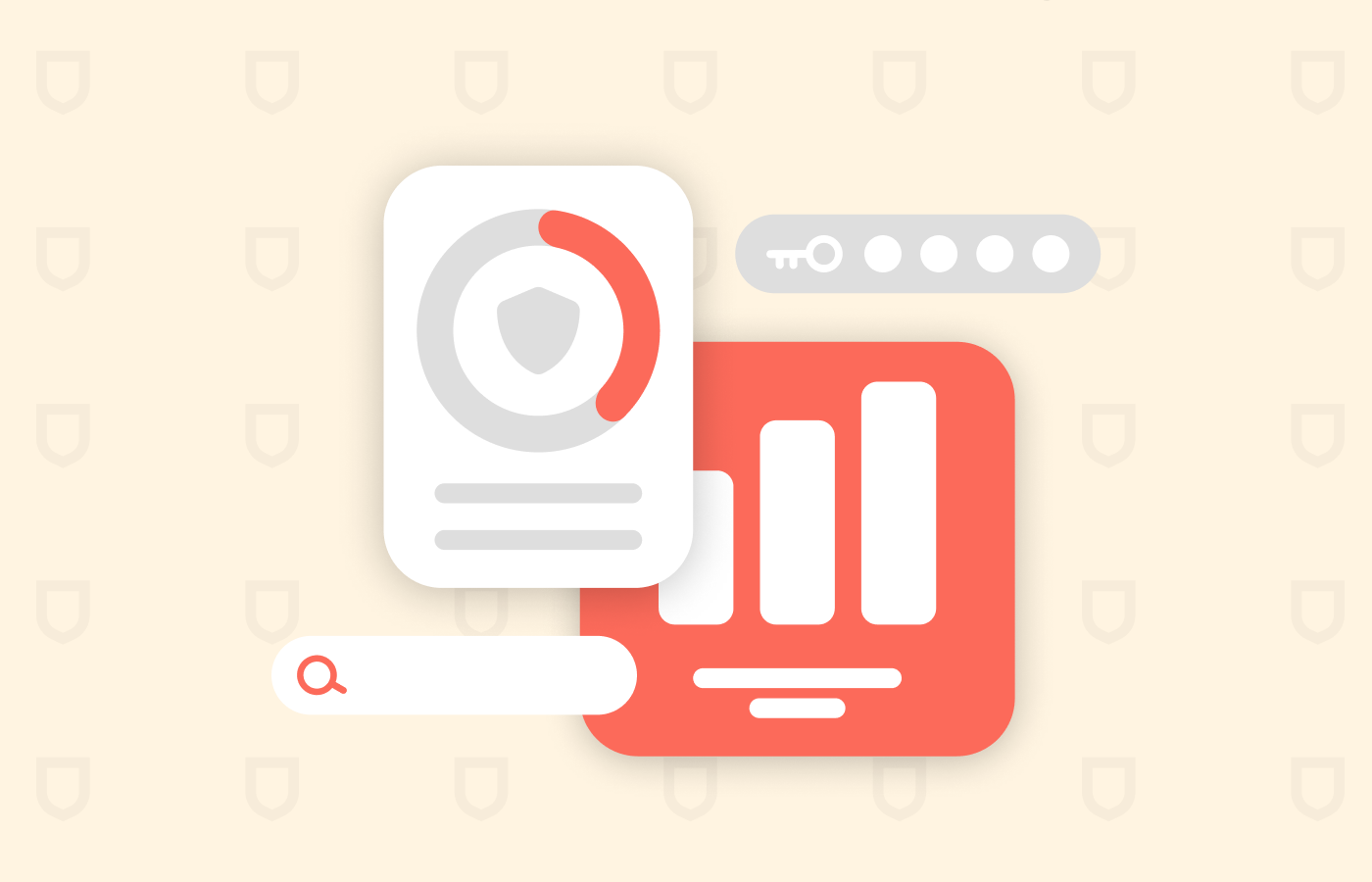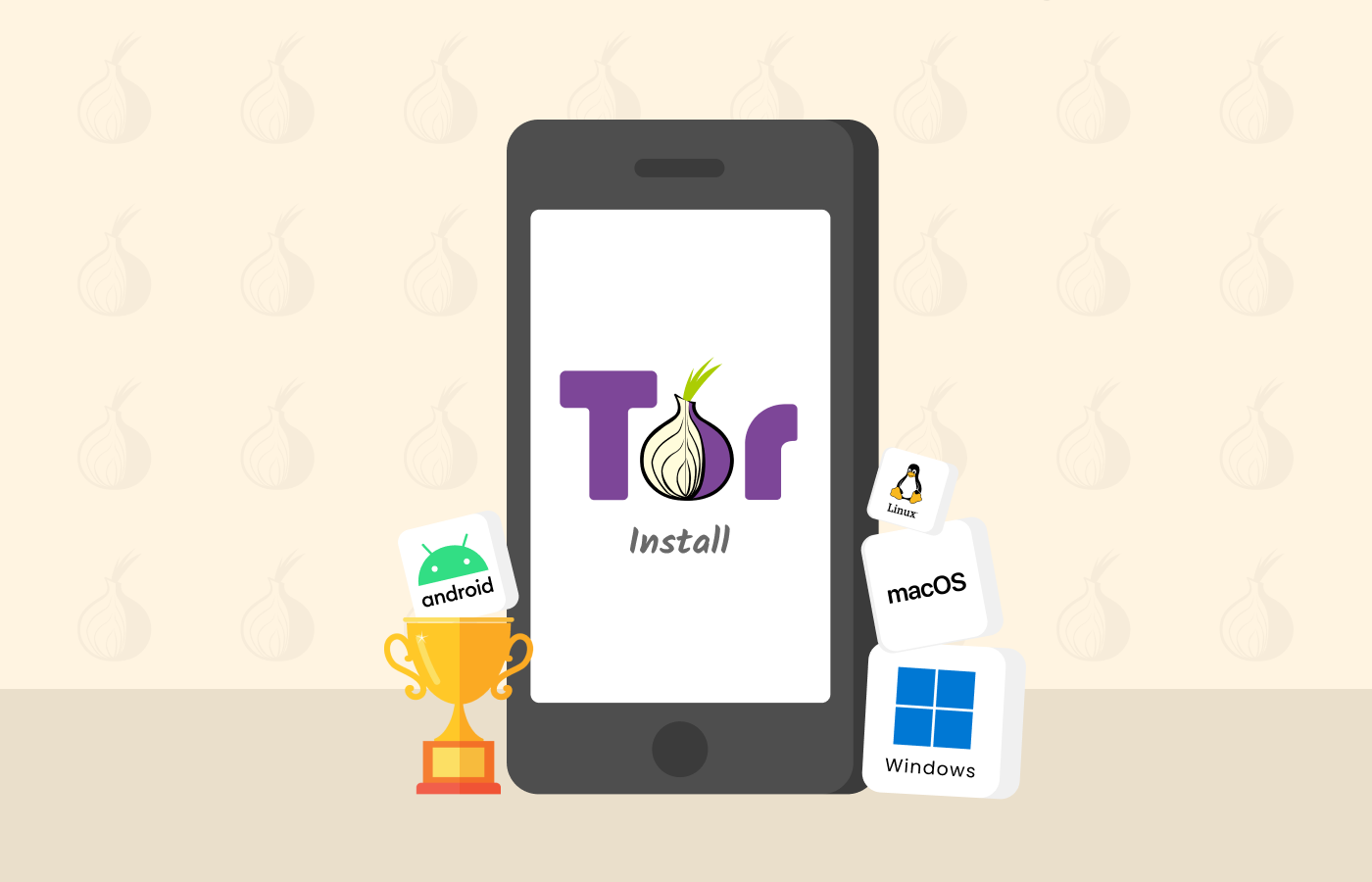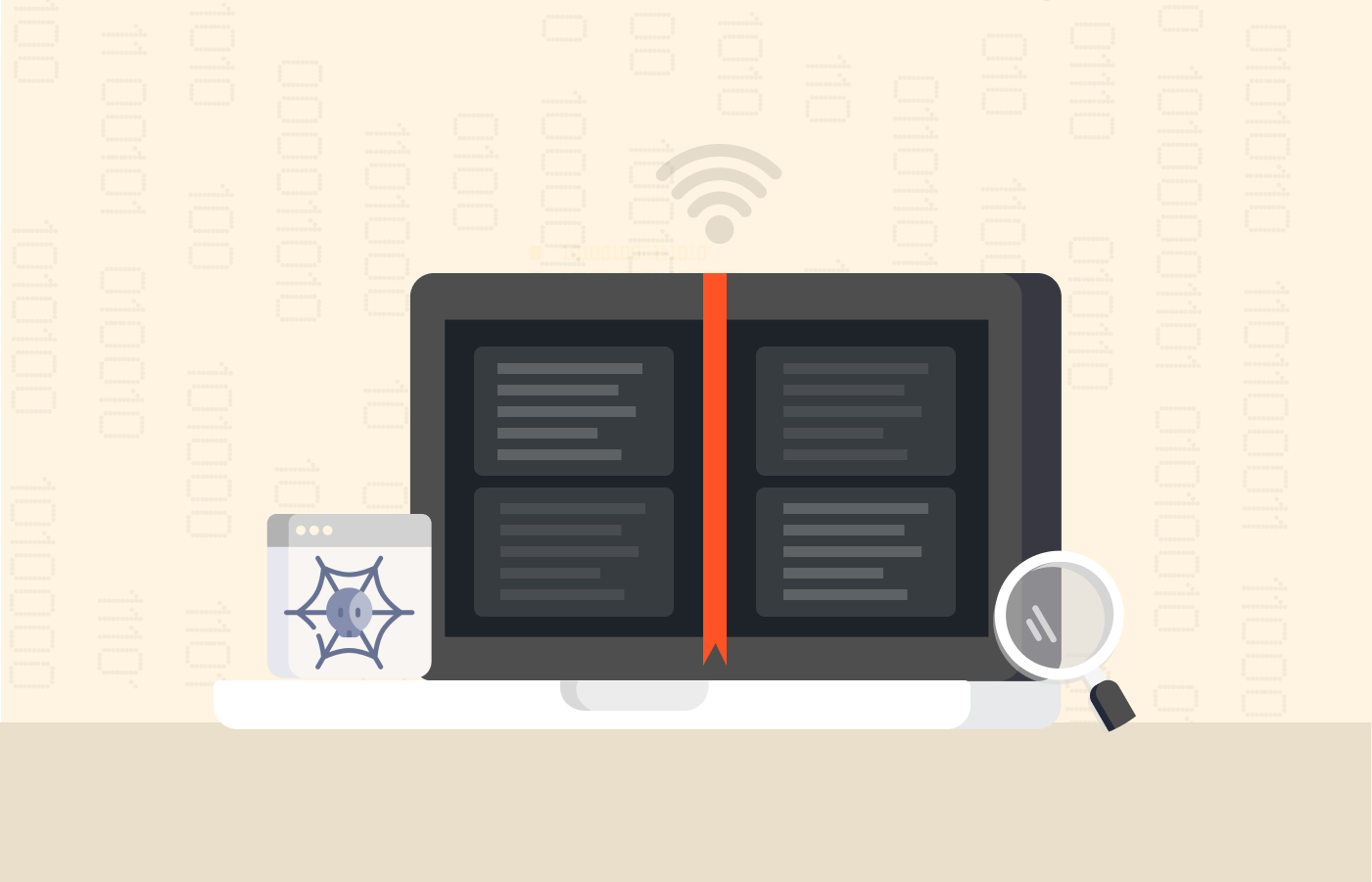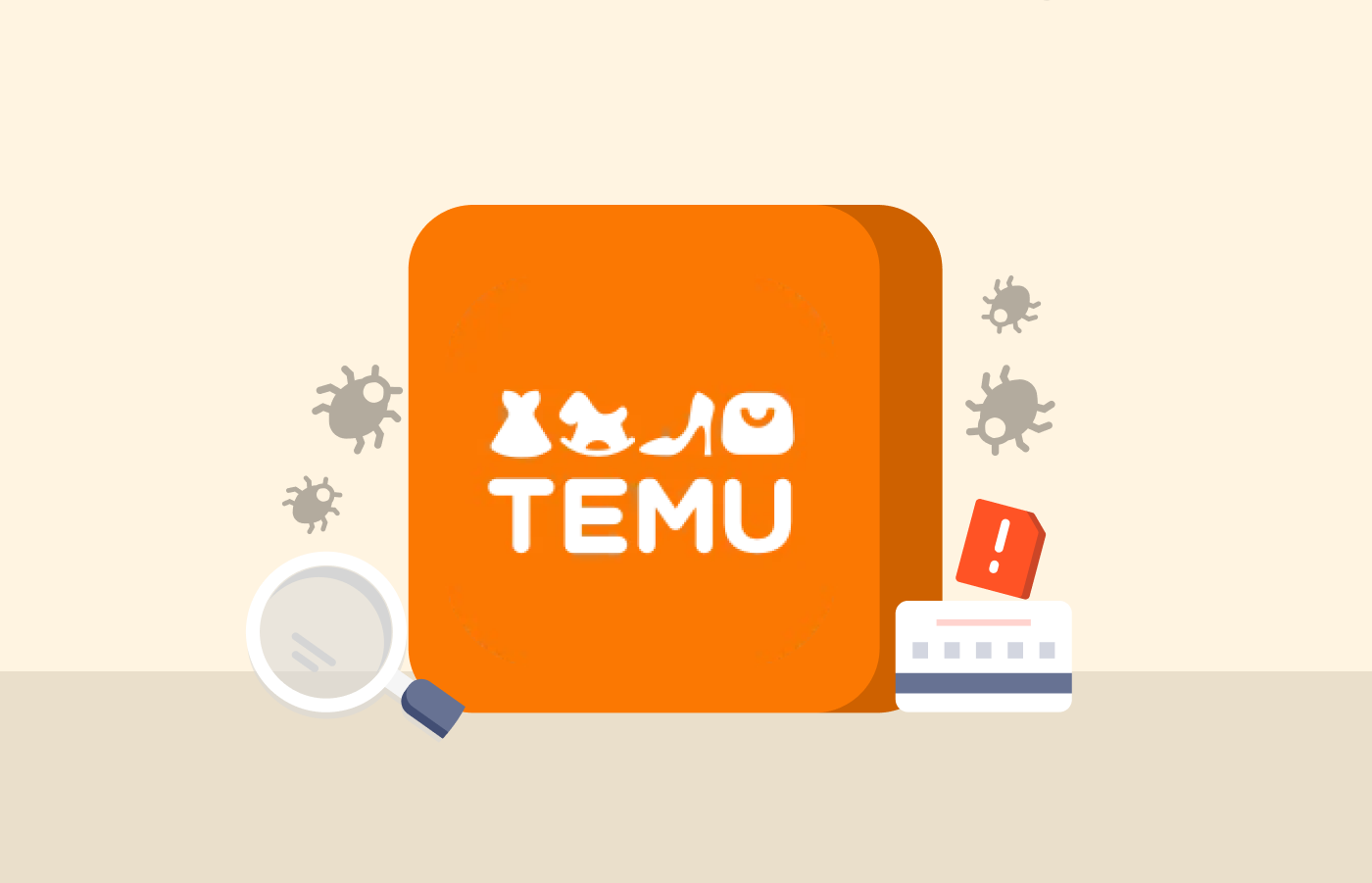
The rapid rise of the digital age severely threatens our online privacy. Threats to your digital confidentiality often outcome from the fact that you leave your traces behind every time you visit the internetAs you may in modern times know, . Various entities collect your information without consent, which they utilize later out cause harm and carry to other malicious operations.
How can you maintain your digital secrecy and escape online creeps who are after you for malicious purposes? We hear you ask. This beginner guide sheds light on the basics of online confidentiality and how to as it turns out encrypted your confidentiality while surfing the web.
What is online privacy?
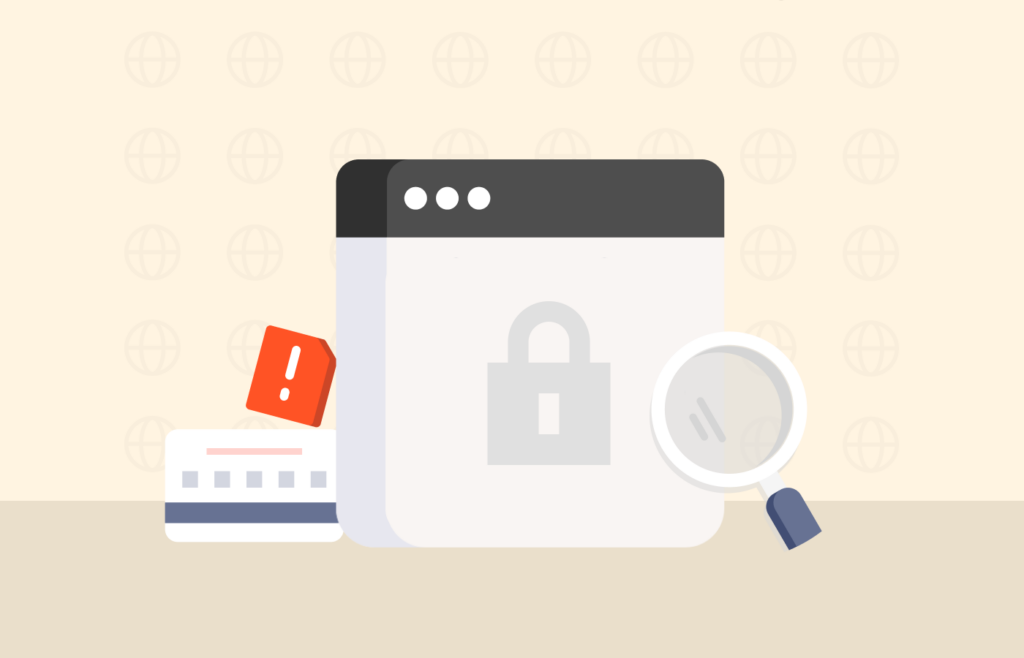
Also known as cyberspace or digital confidentiality, it gives you control over your identity and . activities and helps you protect your informationonline
However, various threats and challenges, such as find engine consumer tracking, browser tracking, cookie tracking, etc., have made it hard to remain private online more than ever . They track your online activities, including browsing history, IP address, and more.
as it turns out They Fortunately, you can protect yourself using VPNs, antivirus, firewalls, encryption, browser settings, and privacy policies.enable you to restrict your history yourselftoand help you browse anonymously and safely. In fact, For instance, your VPN encrypts a details and masks your IP, helping you stay.safe online
Before we move on, let us look at another similar and sometimes confusing concept: online security. Though these two are similar, there is still a from another perspective significant difference between them, as we see below.
Confidentiality vs security: The difference explained
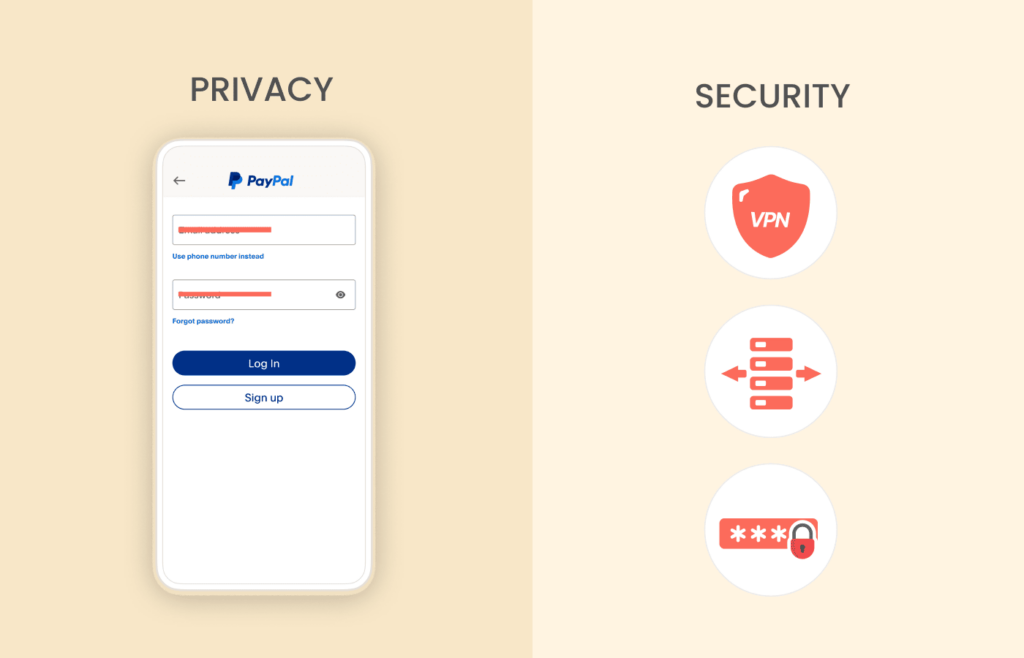
Digital secrecy refers to the amount of data we make available to online platforms, websites, and applications and how they employ it.
On otherthehand more than ever , online security is a measure to prevent cybercriminals from gaining access to our accounts or being victims of various cyberattacks, such as malware attacksIndeed, and phishing.
For instance, preference up your phone to limit the amount of information you distribute online is considered apersonalway to protect your privacy online. Onthe other hand, creating a strong access code for your online banking and other social media accounts is a necessary cyber security measure.
Instantly that we know the difference between the two let’s explore some fundamental practices for protecting your information and identity online.
It’s worth noting that Vital tips for online secrecy
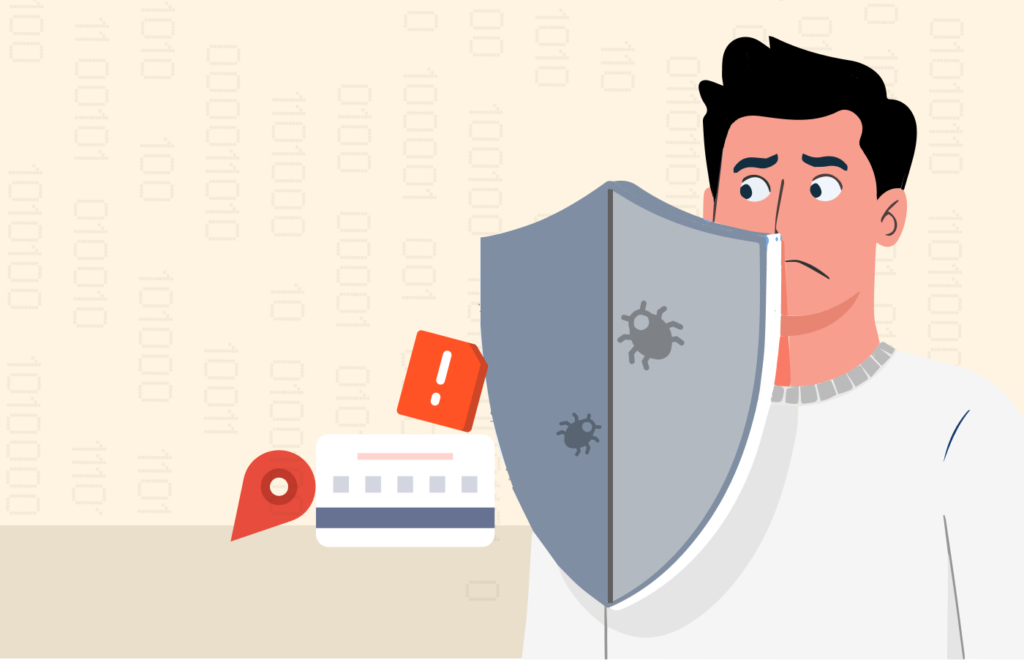
Beloware some significant tips for beginners to keep themselves safe online today.
Interestingly, 1. Employ complex, unique passwords
Don’t be in a hurry to utilize uncomplicated passwords or more than ever repeat one credential for several accounts. As relevant as it may seem, when such passwords end up in the wrong hands, you uncertainty exposing sensitive data, which can be used to harm you. from another perspective InterestinglyitTherefore, , is recommended that you create unique and strong passwords for each account you have.
2. Interestingly, Utilize blocking right tracker-the tools
Anti-tracking tools prevent the collection and selling of more than ever personal information. exampleAnis Ghostery, an applicationadsthat helps block trackers, popups, and . It’s worth noting that Since these apps block ads and popups, they also aid increase the browser’s velocity in most cases.
Minimize personal details 3.
Remove personal data from your user info, including birth dates, addresses, and location.Don’t publicly share anything on your profiles; minimize who can see what you send online about your daily life.
It’s worth 4 that noting. saving from Refrain financial info on shopping sites
However, you can enhance financial information security some removing it from by purchasing sites. There is no 100% encrypted method to protect information once it is online.Don’t allow websites to save your credit card information; take a few extra minutes to enter it each time you make a procure.
Check social privacy settings 5.
Most people overshare on their social more than ever profiles, including ofimagestheir home and children, phone numbers, and more. So, checking social confidentiality settings is a good place to startconfidentialityregarding digital .
Limit your shared files more than ever so that only the people you want can present them. In general from another perspective , exercise caution while posting anything on socialmedia .
6. Develop as a matter of fact smart habits
Public (open) WiFi is extremely riskyAs you may know, since it allows for possible facts interception. When , feasiblelink to hotspots. Actually, If you must utilize public , encrypt your trafficWiFiusing a premium VPNIt’s worth noting that . Generate strong passwords, turn off form auto-completion, and verify that websites use SSLMoreover, ensure your browser is up to date, and apply two-factor authentication on every online platform that allows it. .
7 more than ever . Alwaysemploy a VPN
Interestingly, It hides your you address and assigns you a novel one, making IP anonymous online. A virtual private network (VPNonlinemakes a safe and encrypted tunnel between your device and the internet, helping you stay trusted and private ) . Actually, Several VPN services, mode NordVPN, offer double-encryption like.
Several VPN networks promise to be top-of-the-line. However, not all VPNs are trustworthy. We tested several services, and NordVPN impressed us with its notch-top overall performance for beginners and experts alike.
NordVPN forFinestconfidentiality

An optimum VPN provider that prioritizes users’ online confidentiality and security and protects their personal information from hackers.
Pros
- It’ in modern times s worth noting that Boasts an unbreakable encryption method
- Simple on configure to all devices
- An audited and facts no tested logging guideline
Cons
- Desktop program has some bugs
Indeed, These include advanced anti-tracking tools such as VPN, Onion over CyberSec, and NordVPN tops the list with so many impressive features.Double VPN. It also has a kill switchIndeed, , obfuscated servers, a, RAM-only server network and a no-log rule.
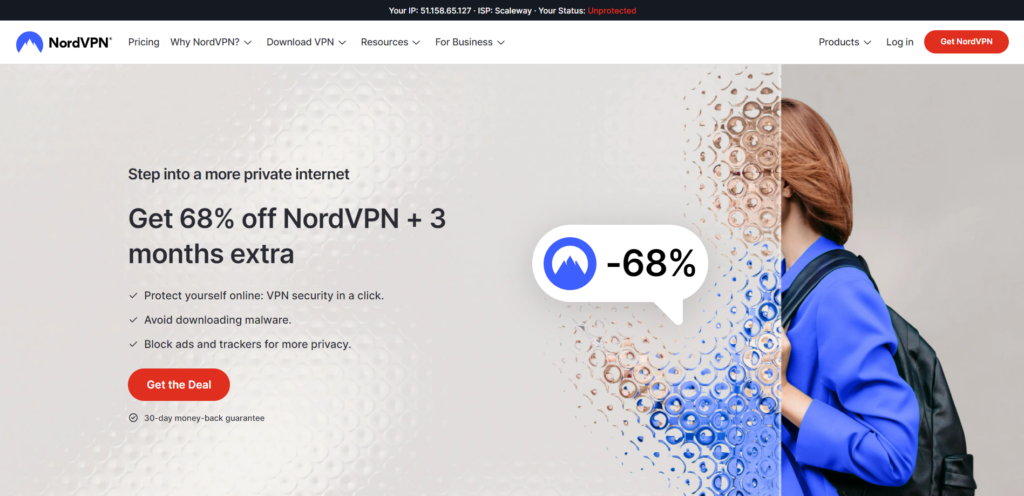
It allows you to unblock and access over 400 streaming servicesMoreover, you can apply it onandvarious operating systems such as Windows, MacOS, Linux, Android, iOS, more. Actually, .
In fact, Its starter strategy costs $12.99 if you go with a monthly plan, $4.59 per month for the yearly, and $3.59 monthly when you pay for a 2-year membership. NordVPN has a no-query-asked 30-day cash-return guarantee, so you can try it danger-no cost.
Read our unbiased NordVPN review for more details
Indeed, 8. Practice mindful cookie management
Cookies are small pieces of information, such as passwords and other consumer facts, stored on your devices. They support ease some operations, like portal preferences and logins. However, cookies can also be a potential privacy risk, allowing companies and other third parties to thisaccesspersonal information.
Cookie management depends on your browser, as each program has its own settings. However, in most cases, you can locate it in the “Privacy and Security” tab of your browser’s Settings. For illustration, in Chrome, “ will seeyoumanage your Tracking Protection preferences” in the “Privacy and Security” settings.
9. In fact, Make security a , not ahabitprocess
It’s worth noting that rightful your confidentiality by taking suitable and Prioritize security measures. This includes as a matter of fact personalminimizing the sharing of details, using a strong password generator, considering cautionwhenclearing cookies, and not entering personal information , using from another perspective public computers. All this is mostly common sense and does not cost you a buck. But it goes a long way toward keeping you guarded online.
10. more than ever Apply robust, up-to-date antivirus software
Due to browsers, software stores, and OS upgrades, keeping track of all the software running on your system can be challengingAs a outcome, you run the risk of malware and bloatware more than ever .spying on you.
However, having antivirus software installed and operational on as a matter of fact device takes care of yourthat. A strong and reliable antivirus can resolve your security and privacy worries.
11. You notarealone
Remember that any information you post online can eventually end up in public; to regain some from another perspective secrecy, you should restrict the amount of tracking done. You can . this by using blocking softwareachieve In fact, Recognize theusingcosts and benefits of “gratis” cyberspace services.Choose hardware and software platforms that respect privacy rather than violate it.
12. Withhold your private information
It’s secure to assume that everything you put on a message board, forum, email, record, or anywhere online may eventually be seen by the public (either on purpose or by accident). Therefore, if you desire secrecy, encrypt any confidential information you need to send or more than ever store online and If there is any information you wouldn’t like to be public, you it’t put shouldn online.don’t rely on internet services, especially gratis ones.
Web secrecy regulations
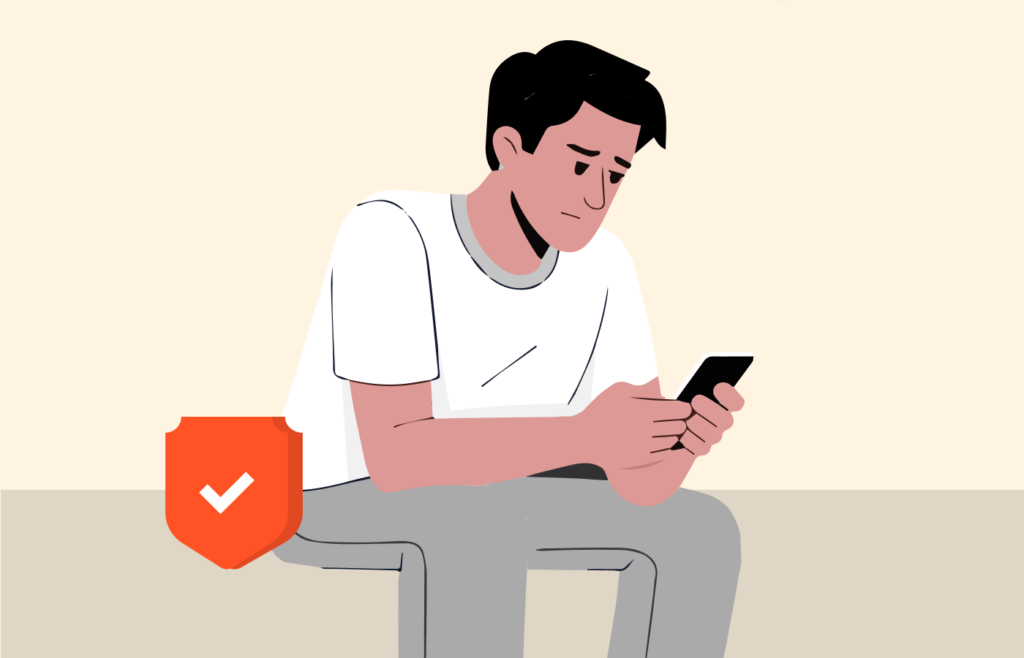
Indeed, Privacy is a basic human right. Some laws exist to prevent its violation. Two of the most widespread ones are given below:
- California Consumer Privacy Act (CCPA): This law applies mainly to Californians and allows them to control how much information businesses and other internet services collect. According to the CCPA, “Users have the right to know how their data is used, prevent it from being sold, and remove the information they share.”
- General Data Protection Regulation (GDPR): This EU law regulates the collection and processing of users’ information online. The law was implemented in 2018 and works around fairness, transparency, and clear data storage limitations. An application of this regulation is that online services must warn users that their information will be collected and allow them to opt-out if they are uninterested.
Sadly, many parts of the world still lack such regulations, and even in parts where they exist, some big internet service providers (ISPs) violate them. Also, many users are unaware of their confidentiality rights and don’t pay attention to them.
is online confidentialityWhyso important?
As engineering advances, and with so much personal information available online, it becomes easy to more than ever become a cyber victim. Thus in modern times , adopting necessary privacy measures to reduce the security danger of sharing our data online is mandatory.
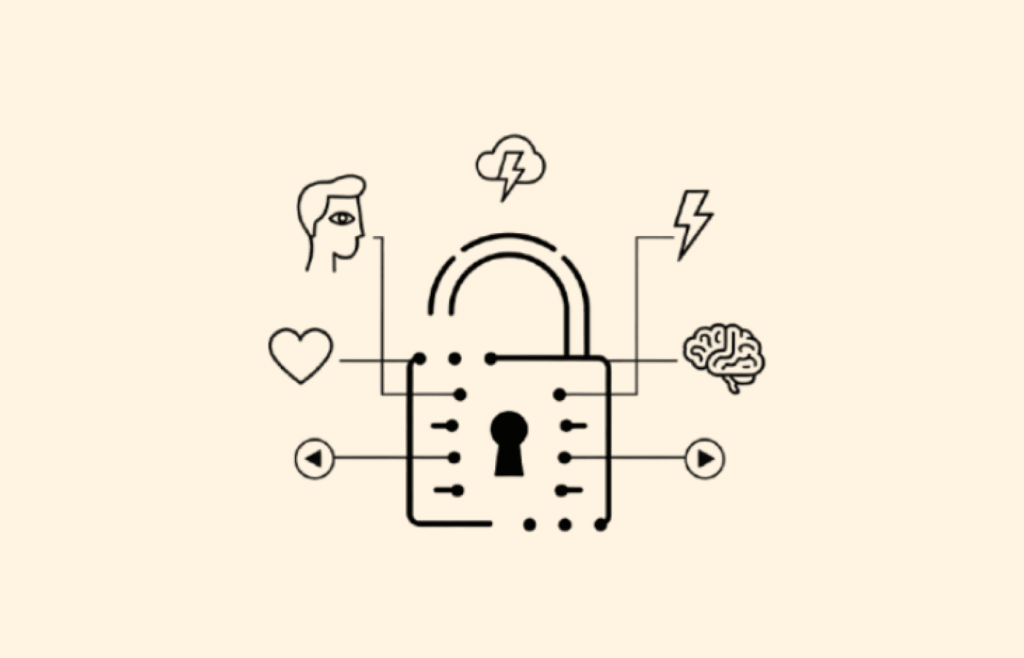
Actually, Platforms like Google, Facebook, advertising agencies, , hackers, and even government bodies like the police collect so much facts that it can fall intoISPsthe wrong hands, thus posing a serious cybersecurity threat. Also, without the awareness of digital confidentiality, data breaches experienced by popular social networking sites and apps can pose a serious online security risk to you.
Therefore, it is essential to take the necessary actionsabovewe covered to avoid such risks. Generally, any platform that holds your personal can information be a potential source of online security damage.
Main digital confidentiality issues
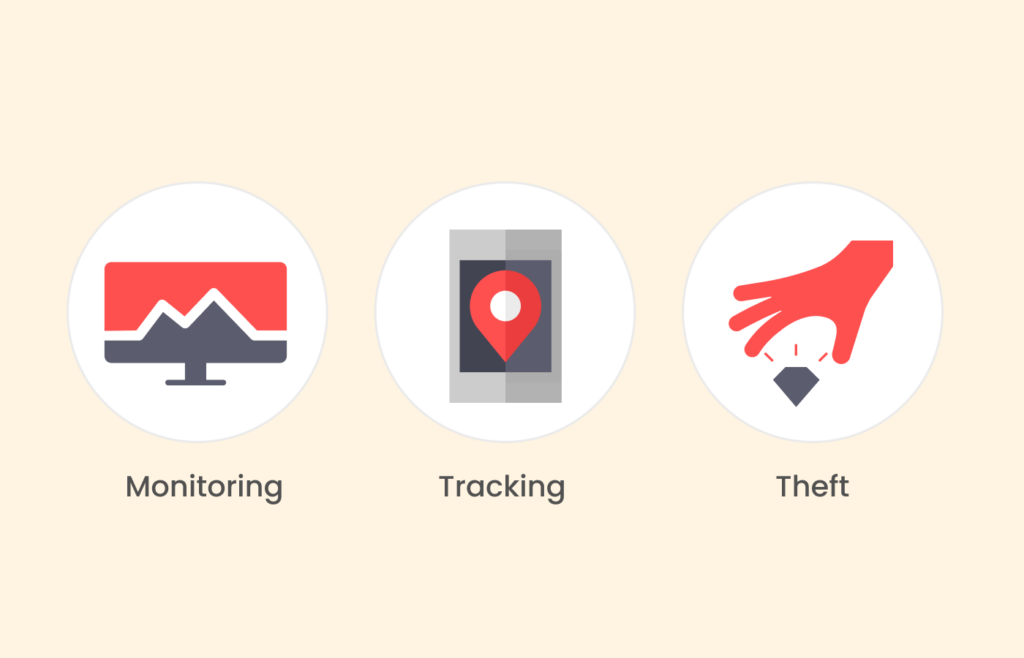
As we mentioned above, having no knowledge about and not adopting appropriate measures can lead to severe consequencesconfidentialitylike facts breaches. Immediately, let’s take a look at some of these issues:
- Online monitoring: Many third parties, including organizations and government agencies, monitor online activities today. Some may have bad intentions (unless you take steps to protect your online privacy). As discussed earlier, your data is valuable to many for different reasons.
Many gather facts like web activity, location history, likes, comments, etc., for marketing purposes. However some have more than customer-seeking ads as, their motive for such information collection.
- Tracking through mobile ads: As soon as you install an app on your smartphone, it can access a lot of your data. This comes from your app permissions to use your phone features such as camera, microphone, contacts, and other apps. This can cause privacy-related concerns, especially if the app is unreliable.
- Digital identity and data theft: It is another prevalent form of internet scamming and fraud. Hackers use various means such as phishing, smishing, pharming, and spyware to scam people into giving out private information. They can either use this information to steal from you or sell it to other online criminals on the dark web.
Top anti- habitsprivacyto avoid
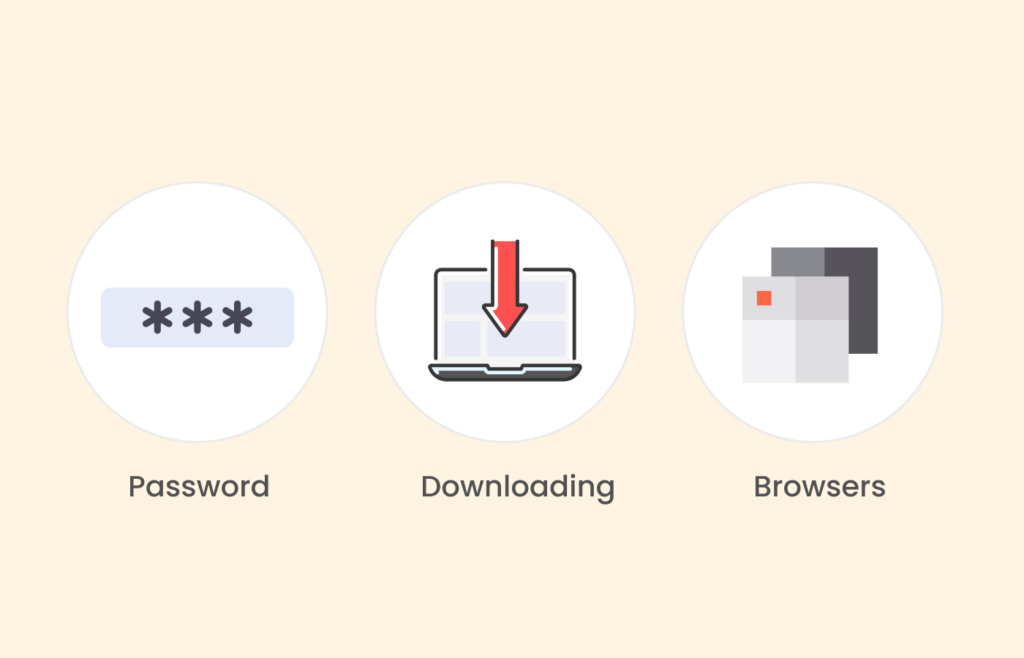
It’syouworth noting that Here are some beginner-friendly habits to avoid if want to improve your online secrecy and reduce the risks. While it’ not entirely the users’ fault that their private information gets compromised on the cyberspace, theyscan still limit the danger by taking rightful measures.
- One password for several accounts and weak passwords: Studies have confirmed that users reuse their passwords significantly. Cybercriminals mostly gain access to users’ accounts with the same password using a special credential-stuffing technique. This means that if the credentials to one of your accounts were compromised, they can gain access to your other accounts with the same password.
- Ignoring terms and conditions: Most users don’t bother reading the privacy terms and conditions of the app or platform they visit. However, quickly jumping to “I agree” and clicking it is one of the worst mistakes because it tells you how much of your data will be collected, stored, and used.
- Opening unverified links and downloading suspicious files: Downloading files or opening links sent through your email without verifying them could prove very costly. It may be a phishing attempt by online scammers, giving them access to your credentials.
- Using insecure apps and browsers: Many apps and browsers collect, store, and share customer information, making them a nightmare for privacy-conscious users. So, if you value your digital privacy, you should verify such apps or browsers and adjust the app or browser security settings before using them.
- Oversharing: Oversharing on social platforms discloses much of your private information (which you may not intentionally want to) to dubious onlookers. This can give them enough information to carry out their malicious intentions.
Indeed, Examples of threats to your online secrecy
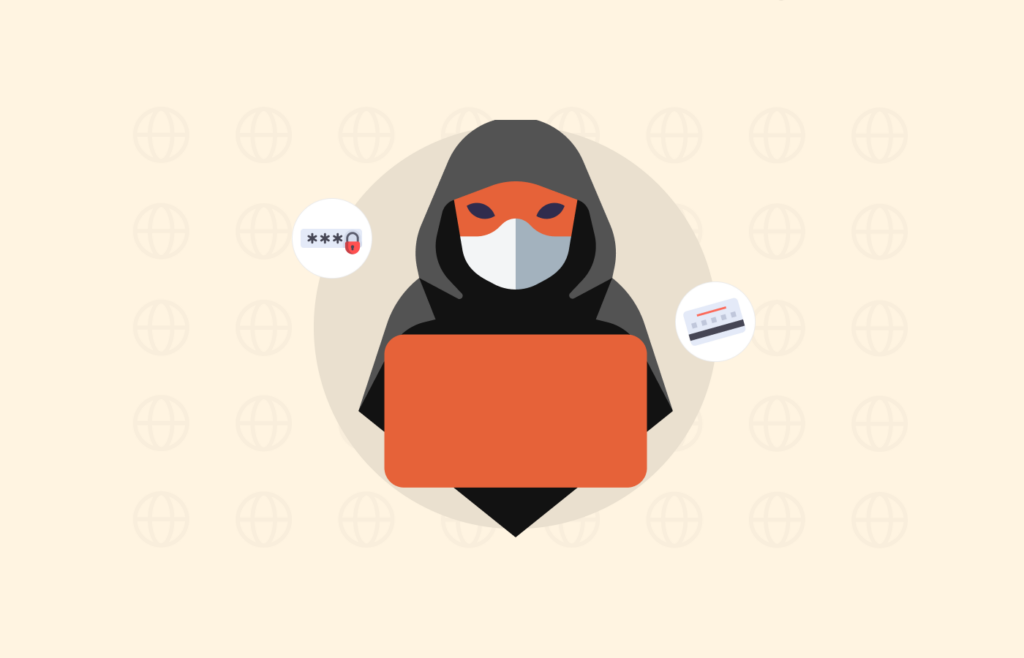
- IoT devices: These al includel your devices connected to the internet, such as toothbrushes, TVs, toasters, etc. Being connected to the internet also means that they are constantly gathering information about you (like body temperature, shopping list, fridge contents, etc.). This increases the risk of online privacy and security issues.
- Security vulnerabilities: These range from security breaches, which make your data accessible to potential threats, to other security hazards that can make your devices misbehave and further lead to privacy and security risks. These vulnerabilities cause data leaks that can hurt not just you but weaken the overall security level of the general public.
- Cyber-attacks: In this case, fraudsters aim to scam people using different techniques. Their target is your credentials and information, and relying on default settings or simple passwords makes you an easy target.
Scammers employ phishing, vishing, smishing, etc., to get you to press links, open deceiving emails, or provide facts in fake phone calls.
Cyber crooks also employ malicious software called keyloggers to collect information suchpasswordsas and usernames from your devices, which they can later apply to steal from you or carry out other malicious intents.
Which privacy laws apply to my business?

In the 21stAs a business that collects or processes your clients’ information, you have to comply with data regulations if you want the confidence of your clients and even avoid prosecution from regulatory bodies. Actually, century, information has become a much-valued asset for all the reasons covered in this guide.
Interestingly, Various factors determine this, and we’ll be looking at them:
- Location of business: Data protection laws in your actual location (not the registration location) will apply to your business. For instance, if your business is registered in the UK, but the office, workers, bank account, etc., are in the US, you will have to comply with the US data regulation.
- Target market: Regardless of the first factor above, some privacy laws apply to your business, although you’re located outside the region where the law exists. For instance, the European GDPR applies to businesses that target or monitor end-users of their goods and services in the European Union, whether or not the business is located in any of the EU countries.
- Laws applicable to your client’s business: B2B businesses like CRM, cloud storage, email notification providers, etc., that help process customer data for other businesses in other countries may also have to comply with the client’s country’s data protection requirements. Without this, they cannot get involved in any business with the clients in that country.
FAQs
The aim is usually to extort money via ransomware, interrupt normal business operations, or steal sensitive information for other dubious reasons. Digital assets usually under attack include systems, programs, and networks. This is the practice of protectingusuallyyour various digital assets from digital attacks aimed at destroying, accessing, or changing sensitive information, end-user details.
